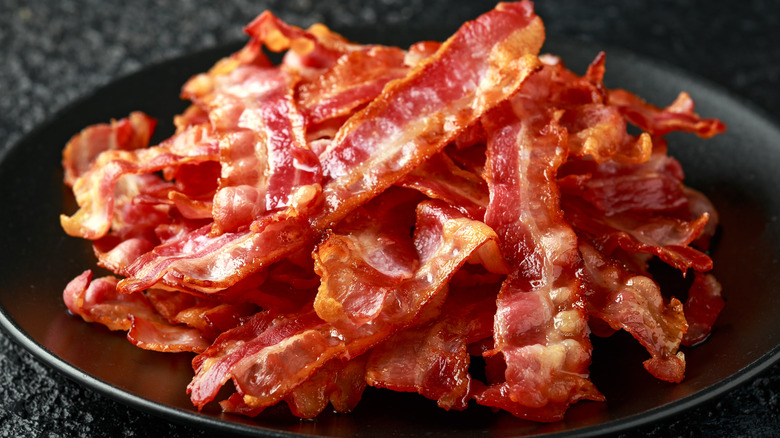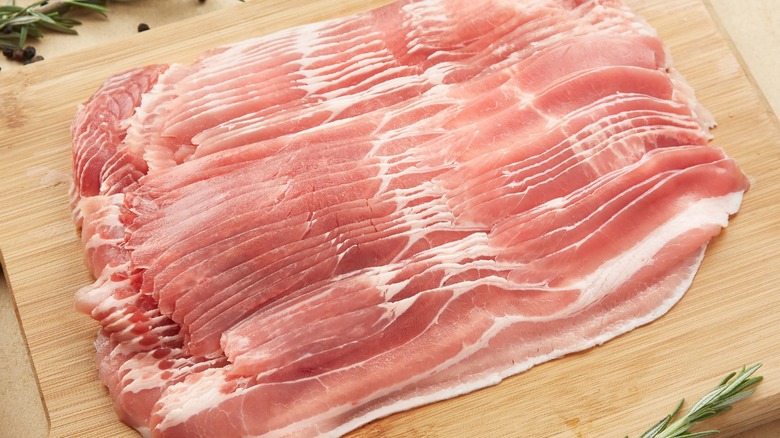Bacon Has Been Around For A Very, Very Long Time
It's no secret that bacon is delicious – delicious tasting and deliciously fragrant. It's also no secret that the salt-cured pork product is used to enhance a wide variety of dishes. Gone are the days, in other words, when bacon was best known as an accompaniment for scrambled eggs, or as the ingredient added to a lettuce and tomato sandwich to make it a BLT.
What is less well-known, but equally remarkable, is just how long bacon has been around. Bacon has been made in China, notably, for at least 3,500 years. This legacy of bacon-making continues in the country today. In Qincheng Mountain, one of the birthplaces of China's Taoist religious tradition, for example, many residents still make bacon the old-fashioned way. Pigs roam free before being culled, cured, spiced, and smoked. The resulting bacon is good for up to one year.
China is credited as the birthplace of bacon, with evidence suggesting that pork bellies were cured and preserved there as far back as 1500 B.C. This specific anatomical choice is telling, since contemporary bacon production in the U.S. also relies on the salting, spicing, and curing of pork bellies. What we call "streaky" bacon is thus descended from an age-old tradition.
How bacon spread worldwide
From China, knowledge of bacon production slowly spread around the globe. The Ancient Romans were the first Europeans to make bacon, doing so from about 700 B.C. This preservative aspect proved important to the Roman army, which was often posted in far-flung corners of the empire. This was particularly true in the case of Avidius Cassius. A Roman general during the 2nd century, Cassius ordered his troops not to pack any food items except bacon fat and biscuits. Vinegar was also allowed.
The word bacon came into common usage in the English language during the Middle Ages, likely nearly the early part of the 14th century. It's thought to be derived from similar words in French and German. Interestingly, bacon in England became associated with peasants and the poor, leading famed poet and playwright William Shakespeare to use the word bacon synonymously with "rustic." Due to the low cost involved in keeping pigs, bacon was an affordable option for the lower classes. Bacon was also commonly rationed to sailors of the day.
Bacon made its way to the Americas, meanwhile, via European voyages of discovery. Christopher Columbus, for instance, is credited with bringing pigs to the Americas. But it didn't happen on his first voyage in 1492. Rather, eight pigs were boarded on Columbus' second voyage to Cuba in 1493.

